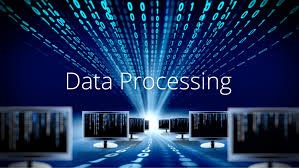Retail census (RC) is conducted to measure the size and characteristics of the universe. These estimates, which are updated on a regular basis, are used to:
- Identify different outlet types and quantify number of outlets in a universe by type.
- Provide key statistics for setting up a representative retail panel.
Details collected in a retail census typically include: outlet name, outlet physical address, outlet telephone number, outlet type e.g. supermarket, duka, hypermarket, convenience store, etc, use of scanning equipment, presence of air-conditioning, refrigeration facilities, number of hours open per day, monthly turnover, floor space, presence of major product categories, products types available, product sizes available, Outlets GPS coordinates, outlet images/photos, etc.
Our field personnel armed with area maps and questionnaires, go street by street collecting the relevant information. Most of the information is gathered by observation, and the remainder may be obtained from store owners/employees. Using the right data collection methodology like left/right hand rule methodology or any other is key to ensure total and thorough mop up of the outlets in the all the streets without skipping any outlet or street. For thorough mop up purposes, the defined universe is split into a number of mapped areas called primary sampling units (PSU). The PSUs are categorized by some measure of size usually provided by government, e.g. cities, towns, villages or polling districts. Every outlet is surveyed within the sample of which it can either be a country, or a certain region.
Information on monthly turnover for the stores of participating retailers is obtained from their data. As for non-participating retailers, some store owners may refuse to divulge data of this nature. For these stores, the missing data is projected by statisticians based on store characteristics such as store type, location, floor size, number of major categories, facilities etc.
A common approach called the rolling census is used for the important geographical areas such as cities. The PSUs are divided across and spread across geographical areas, store types, location types. Once these PSUs are defined, the country or an area is surveyed periodically (e.g. once every three months or every six months or every once a year) rolls from one country to another, or from region to another. So that over time all countries or regions are covered, and the cycle continues.
The core purpose of the retail census is to establish a basis for the sample design, and the foundation for the retail tracking service. It does however serve a number of secondary objectives. For example, store census information is used by sales management for developing sales strategies, and the aggregate data provides an understanding of retail trends in regions and countries.







